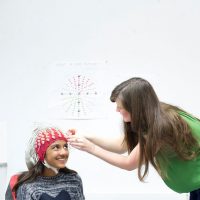ACAMH Website Content Types
-

Mental health workers have more empathy
Mental health workers have greater empathy than physicians or other professionals, according to a study from Favaloro University, Buenos Aires.
Read more -

Fighting for attention
To present a more complete picture of a highly heritable disorder, The Bridge has spoken to two parents of children with ADHD about the challenges and concerns that it can present.
Read more -

ADHD screens: look into language
A literature review of language problems in ADHD has confirmed large deficits in multiple areas of language functioning among young people with the disorder.
Read more -

Telephone support for parents in ADHD
Due to its high prevalence, treating ADHD can place a burden on services. Self-help and remote interventions could offer a way to deliver treatment at scale, if they’re effective.
Read more -

Unpicking assessment for Adult ADHD
Variability in assessment methods could be behind the vast range of rates given for the persistence of ADHD into adulthood – from 5% up to 75%.
Read more -

Brain firing, but not wiring, is different in children with ADHD
When in a relaxed state, the brains of children and adolescents with ADHD tend to fire differently to those without the disorder, although there don’t seem to be changes in the physical connections or ‘wiring’ of their brains.
Read more -

The SAAND Study: Attention and arousal regulation in neurodevelopmental disorders
The SAAND Study – An investigation into the role of attention and arousal regulation in ADHD and ASD, and comorbidity between these disorders
Read more -

Professor Uta Frith – ‘a trailblazer for autism’
Interview with Professor Uta Frith, Emeritus Professor of Cognitive Development at University College London about her life, career and research on autism spectrum disorders.
Read more -

The Bridge Returns
Welcome back to ‘The Bridge’. The full set of articles will be published in December for ACAMH Members.
Read more -

Patient-centred practitioners prioritise PROMs
Clinicians who use therapeutic approaches that focus on patients’ perceptions, such as CBT, may be more likely to seek patient feedback.
Read more